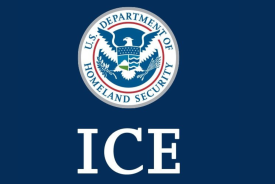Rider University to Fire 25% of Faculty and Cut Everyone's Pay 14% — Or Face Closure
By
WHAT YOU NEED TO KNOW:
The Crisis: Rider University placed on financial probation October 30 by Middle States accreditors. If Rider loses accreditation, students can't get federal financial aid—essentially closing the school.
The Plan: "March to Sustainability" approved unanimously by Board October 30 requires:
- Lay off 35-40 full-time faculty (25% of total) by December 31
- Cut ALL employee base pay 14% starting December 1
- Suspend retirement contributions indefinitely starting December 1
- Require all remaining faculty teach more classes per semester
- Eliminate external faculty tuition remission (2026-27)
- Eliminate priority adjunct health benefits (January 1, 2026)
- Eliminate several senior administrative positions
The Numbers:$21.8 million deficit. President John Loyack called situation "more severe than expected" and warned of "severe cash deficit" threatening core financial obligations. Middle States meet in March 2026 to decide accreditation status.
The Outrage: AAUP President Maria Villalobos-Buehner: "This has been the narrative for the last 10 years... The Board has approved yet another plan in which the faculty is carrying all the responsibility for things that happened that we were not involved in."
The Timing: Faculty got email about mass layoffs less than 30 minutes after campus emergency shelter-in-place was lifted November 10, with no communication from president about their well-being.
LAWRENCEVILLE, N.J. — Rider University administrators announced plans Monday to lay off roughly 25 % of its full-time faculty by Dec. 31 as part of a cost-cutting strategy following the university's placement on financial probation by its accreditor.
Under the "March to Sustainability Plan" unveiled by President John Loyack on Nov. 10, the institution will eliminate 35-to-40 full-time faculty positions, reduce all employees' base pay by 14 %, suspend the university's retirement contribution indefinitely starting Dec. 1, and increase faculty teaching loads.
Rider was placed on probation by the Middle States Commission on Higher Education on Oct. 30 after auditors raised concerns about the university's financial stability. The probation raises the possibility that Rider could lose accreditation if improvements aren't made.
What Losing Accreditation Actually Means
On October 30, the Middle States Commission on Higher Education placed Rider on probation.
This isn't a minor administrative issue. It's existential.
If Rider loses accreditation from Middle States, students are no longer eligible for federal financial aid. That includes:
- Pell Grants
- Federal student loans
- Work-study programs
Without federal aid, most students can't afford to attend. Without students, the university closes.
Middle States became concerned about Rider's "financial viability" and whether the university complies with Standard VI: Planning, Resources and Institutional Improvement—which requires appropriate financial, human, physical and technical resources.
Translation: Accreditors aren't confident Rider can pay its bills.
While under probation, Rider remains accredited and has until January 12, 2026 to submit a monitoring report showing compliance with financial standards. Middle States will meet in March 2026 to decide whether to:
- Remove probation (best case)
- Continue probation with conditions (bad)
- Remove accreditation (catastrophic)
Why This Matters
- The volume of proposed faculty cuts at Rider is significantly higher than typical budget-reduction efforts at U.S. universities and signals deep-seated financial distress.
- Loss of faculty capacity may impact program viability, teaching loads, and student-faculty ratios, raising concerns about academic quality.
- Accreditation probation places additional regulatory pressure on the institution and could deter prospective students or donors.
- The situation highlights the broader vulnerability of small private universities facing declining enrollments, revenue pressures, and rising costs.
What Comes Next
The university's Board of Trustees unanimously approved the cost-reduction plan at its Oct. 30 meeting according to the Rider news. Implementation begins immediately, with mass-notification to impacted faculty expected in the coming weeks. Faculty and staff will continue negotiations with Rider administration and union representation in an effort to mitigate the impact.
Observers will watch closely whether the cuts stabilize Rider's finances without compromising academic mission — and whether similar institutions follow suit amid mounting higher-education financial pressures.
© 2026 University Herald, All rights reserved. Do not reproduce without permission.








